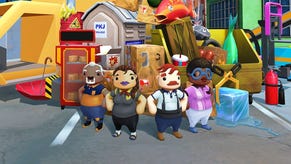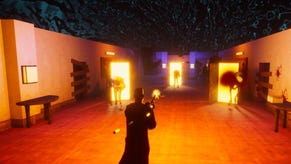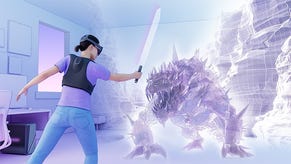Consoles must embrace user content - Valve
Valve's marketing director Doug Lombardi has told <i>GamesIndustry.biz</i> that consoles must embrace user created content if they want online to matter.
Valve Software marketing director Doug Lombardi has told GamesIndustry.biz that consoles must embrace user-created content.
"I would argue that it's the biggest component those guys have to get over if they want online to matter," said Lombardi.
"Half-Life 1 was okay as a multiplayer game and Team Fortress Classic was really good, but Counter-Strike kicked both their asses no question. And that came from a kid going to college in Canada and another kid going to high school in New Jersey, who had our code and thought it would be cool to play our game.
"The PC has that great advantage; has had that great advantage, and it comes from multiplayer and modding starting in the early '90s and [online] multiplayer only showing up on consoles in 2000 or 2001.
You've got a good 10-to-15-year lead there and you still have broken pathways on both consoles, so the PC has the advantage of time and a clear pathway," he elaborated.
"You've got a freeway set up on the PC and you've got this dirt road with roadblocks all over it on console in terms of getting user-made content out there."
Consoles are starting to get to grips with user-created content, with PlayStation 3 in particular seizing upon it to empower the experience in Media Molecule's ambitious LittleBigPlanet, but where it is available at the moment often has to be distributed player to player.
Elsewhere, games that originate on PC with level editing tools, like Xbox Live Arcade's Eets: Chowdown, are simply repackaged for console with those elements removed.
That's likely to be the case with Valve's upcoming games like Portal, Lombardi admits.
"I would love to see that happen, but I think the platform holders are always going to need certification, which means it's usually going to have to be a commercial thing," he admitted.








